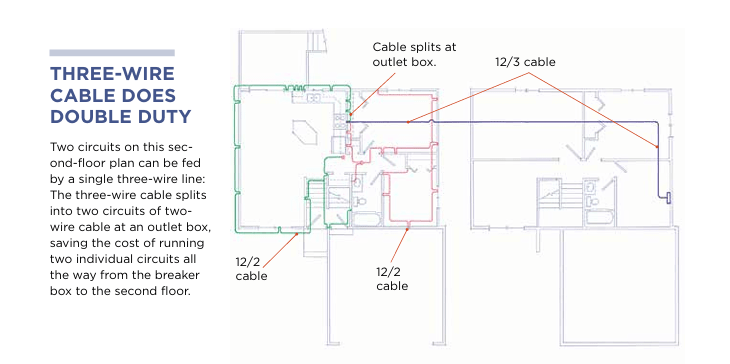The Role of Lighting in Energy Efficiency
Lighting is a key driver of both comfort and energy use in modern homes. While efficient fixtures like LEDs are important, the way a home is wired plays an equally critical role. Smart wiring strategies ensure that energy is not wasted, circuits are not overloaded, and lighting layouts work seamlessly with household needs.
Traditional wiring often prioritizes convenience for electricians rather than long-term cost savings for homeowners. But by rethinking lighting circuits during design, builders can achieve measurable reductions in both installation costs and monthly energy bills.
Strategies for Smarter Wiring Lighting Systems
Centralized Switching
Placing switches strategically reduces excess wiring. Grouping lights by use area rather than over-wiring each room keeps circuits lean and efficient.Minimized Circuit Lengths
Shorter runs of wire mean lower costs and less energy loss. Wiring systems should minimize backtracking and unnecessary loops.Efficient Fixture Selection
Choosing high-efficiency fixtures not only reduces wattage but also allows for smaller circuit loads, reducing overall wiring needs.Dedicated Task Circuits
Kitchens, workspaces, and bathrooms benefit from dedicated circuits to ensure reliability and safety while keeping general circuits lighter.
Balancing Cost and Performance
An efficient wiring plan isn’t about cutting corners—it’s about cutting waste. By analyzing the use patterns of a home, circuits can be designed to handle the right loads without oversizing. This avoids higher costs for wiring, breakers, and panels while ensuring lights function reliably.
Even small design changes, like limiting three-way switches to spaces where they are truly needed, help balance upfront costs with practical performance.
Conclusion
Wiring lighting systems with efficiency in mind reduces costs and energy use while improving safety and comfort. Smarter circuit strategies prove that savings start long before the lights are switched on.
Learn more about energy-smart building and wiring strategies, the full guide is here.
Also read: Passive Ventilation System: Affordable Fresh Air for Airtight Homes





